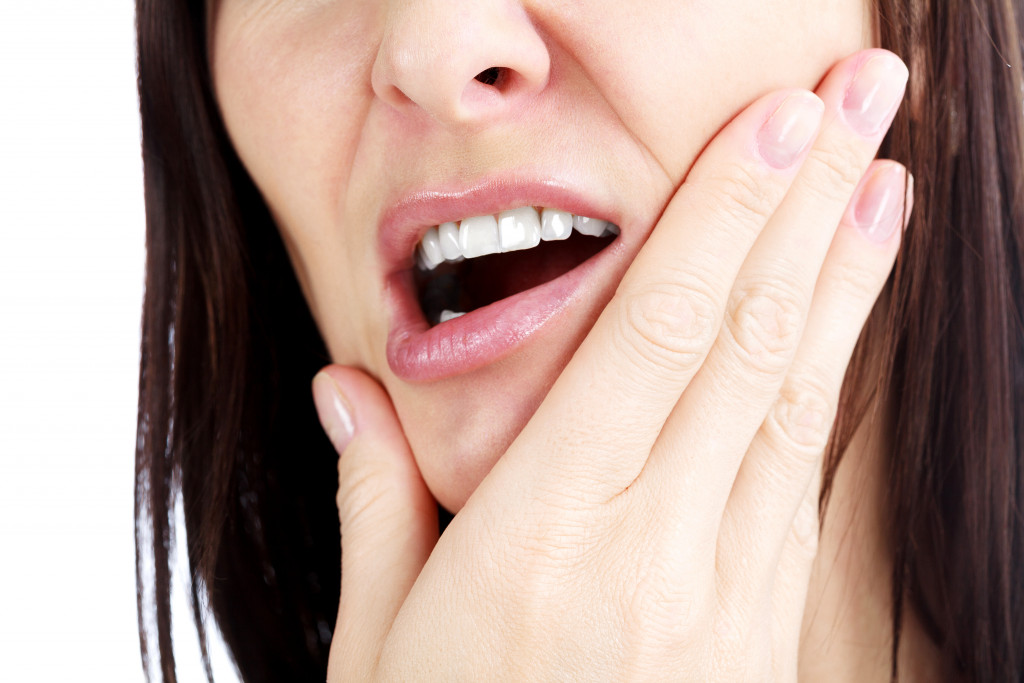A beautiful, confident smile is something that everyone deserves. And while there are a lot of myths out there about braces, the truth is that they can be a life-changing investment – both aesthetically and structurally.
Braces can correct various dental problems and malocclusions or bad bites. This means braces are not just for kids anymore. According to reports, one in five patients with braces is over 18 years old. However, not all who need braces are getting them.
Signs You Could Benefit From Braces
Many people who could benefit from orthodontic treatment are unaware of it. If you’re on the fence about whether or not to get braces, here are five signs that say you should consider it:
Your Teeth Are Crooked or Overlapping
Misaligned teeth are aesthetically unpleasing and can cause difficulty cleaning your teeth properly. You may be more prone to developing gum disease or tooth decay if you have crooked or overlapping teeth. By getting braces, you can improve your oral health and the overall appearance of your smile.
Braces help correct alignment issues by gradually moving your teeth into their proper position. And while they may take some getting used to at first, the results are worth it!
You Have an Overbite or Underbite
An overbite is when your top teeth protrude too far over your bottom teeth, while an underbite is the opposite. Both of these misalignments can lead to speech impediments and difficulty chewing. These can also impact one’s confidence and self-esteem.
Braces can help bring your teeth back into alignment, correcting your bite if you have an overbite or underbite. This can help you speak and eat more easily, as well as improve the appearance of your smile.
You Grind Your Teeth
Teeth grinding, or bruxism is a condition that affects many people — often without them even realizing it. Stress, misaligned teeth, or sleeping disorders can cause teeth grinding. Over time, this can damage your enamel, lead to gum recession, and cause headaches.
Talk to your dentist about if you think you may be grinding your teeth at night. They may recommend getting a mouthguard to wear at night, which can protect your teeth from further damage. In some cases, they may also recommend braces to help correct the alignment of your teeth and prevent bruxism.
Your Jaw Pops or Makes Noise When You Open Your Mouth

Does your jaw pop or make clicking noises when you open it wide? This could signify temporomandibular joint (TMJ) disorder caused by misaligned teeth or a bad bite. People with TMJ may also experience pain in their jaw, face, neck, and shoulders.
If you have TMJ disorder, getting braces can help correct the alignment of your teeth and improve your bite. This can alleviate your symptoms and help you find relief from the pain.
You’re Not Happy With Your Smile
Perhaps the most obvious reason to get braces is if you’re simply not happy with your smile. If your teeth prevent you from smiling confidently, it may be time to consider orthodontic treatment.
Braces can help straighten your teeth, giving you a beautiful smile you’ve always wanted. You no longer need to hide your smile, and you can finally feel confident in your appearance.
Consulting the Pros
If you’re considering orthodontic treatment, the first step is to consult with a qualified orthodontist. Not all dentists are orthodontists, so it’s important to see someone who specializes in this area. The right experts studied orthodontics and can provide the treatment you need to achieve the desired results.
Your orthodontist can assess your case and recommend the best course of treatment. They can also answer any questions or concerns you may have about getting braces.
When you consult with an orthodontist, they will likely thoroughly examine your mouth, teeth, and jaws. They may also take x-rays or dental impressions to understand your mouth’s current state better. Based on this information, they will be able to develop a treatment plan tailored just for you.
Fighting Dentophobia
If the thought of getting braces sends you into a panic, you’re not alone. Many people experience anxiety or fear regarding dental procedures — also known as dentophobia.
Dentophobia is a common phobia that can prevent people from getting the dental care they need. If you have this fear, the thought of getting braces may seem daunting. However, there are ways to ease your anxiety and make the orthodontic process more comfortable.
Some people find the treatment less intimidating when they know what to expect. Learning about the process beforehand can help you feel more prepared and at ease when the time comes to get braces.
In some cases, sedation dentistry may also be an option. Dentists would use medication to help you relax during dental procedures. Sedation can make dental procedures much less stressful and may even help you forget the procedure entirely.
If you have dentophobia, talk to your orthodontist about it. They will be able to offer helpful tips and advice on how to ease your anxiety. Sometimes, they may even recommend sedation dentistry to help you relax during treatment.
Making the Decision
There’s no doubt that having straight, healthy teeth can boost your confidence as nothing else can. If you’re thinking about getting braces but aren’t sure if now is the right time, this guide can help you make the decision. Braces can benefit people of all ages, so don’t wait any longer to achieve the smile of your dreams!
